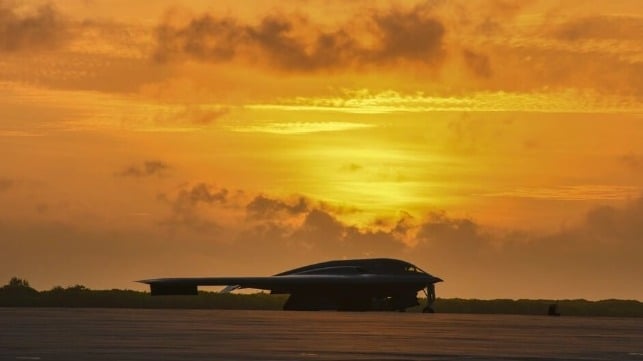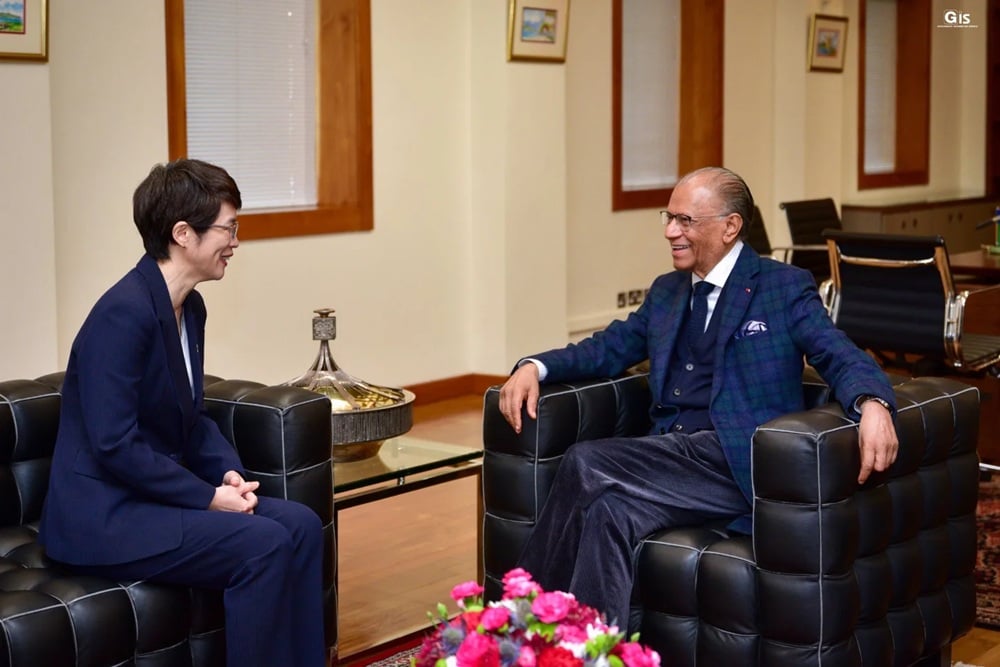Dangers of the UK's Surrender of the Chagos Islands Begin to Crystallize

The UK government’s plan to surrender sovereignty of the Chagos Islands to Mauritius took a major step forward this week when the bill passed its Second Reading in the House of Commons, its primary legislative hurdle. The Bill now goes to the House of Lords, where there could be delays. But the most likely obstacle to the deal going through would be a change of heart in the United States – which will be the ultimate loser when the arrangements in the deal unwind and its true character emerges.
The deal envisages continued US use of the Diego Garcia Naval Support Facility, but under a lease-back arrangement, once the UK has surrendered sovereignty over the British Indian Ocean Territory.
The deal was originally promoted in the UK by a group of progressive human rights lawyers (with Starmer a core member), who believed the UK’s national interest would best be served by giving primacy to international law. The mood in Britain has changed significantly since then, and Sir Kier Starmer’s involvement in forcing the deal has not helped his prospects. The Reform party, which leads in the UK polls, has promised to reverse the deal if it gets into office.
A more realistic assessment is that the deal will be completed, and sovereignty will be transferred to Mauritius. However, even before completion, the dangers of the deal are becoming evident.
The most likely adverse occurrence would be the Mauritian government exploiting its rights under the deal to obstruct American use of the base, thereby reducing its value as a strategic asset. The requirement to notify the Mauritius government of any impending attack on a third party, and the right of Mauritius to maintain a presence on Diego Garcia - able in effect to spy on American activity - are the most obvious levers which could be exploited. The Mauritian government and its opposition are far more aligned with Chinese and Indian interests than those of the United States and the United Kingdom. Once the deal is signed, these antagonisms will emerge. The deal has not bought the friendship or loyalty of Mauritius.

Mauritius PM Navin Ramgoolam meets Chinese Ambassador Dr Huang Shifang, May 14 (Instagram)
India, seen as a friend by the United States several months ago but last seen standing alongside Russia, China, Iran and North Korea at the recent military parade in Beijing, has already made an unsolicited offer to ‘help’ Mauritius patrol the Chagos Islands Maritime Protection Area. While greeting the deal as a victory for anti-colonialism, the Indian government has already in effect annexed the Mauritian islands of Agaléga to construct a military base, despite strong opposition from the island’s inhabitants. The Mauritian economy is tied closely to that of India, which has strong leverage over the island.
If India does not use its muscle in favor of anti-American interests, the Chinese are waiting in the wings to do so. At a meeting on May 14, the Chinese Ambassador Dr Huang Shifang pledged to strengthen Mauritius-Chinese relation, particularly in light of the ‘strategic advantages’ which Mauritius enjoys, and that there would be ‘broad prospects for future collaboration’. The Mauritian Prime Minister has had close personal links with China since his father established China-Mauritian diplomatic ties in April 1972. Both China and Russia have welcomed the deal.
The deal could also potentially collapse if a future United Kingdom not supportive of the surrender decided to renege on its payment schedule. The UK government is committed to paying Mauritius an annual rent of $220 million for each of the first three years, $160 million for the next ten years, and then $160 million rising with inflation thereafter. The deal was originally lifetime-costed in the House of Commons at $5 billion, a figure subsequently raised using government accounting protocols to $47 billion. Given the UK’s budget deficit, any future government might be tempted to stop paying the annual cost for the privilege of having surrendered the sovereignty of the British Indian Ocean Territory in 2025.

that matters most
Get the latest maritime news delivered to your inbox daily.
It is difficult to predict accurately what consequence will occur and when, but most of them threaten the United States’ continued use of the Diego Garcia Naval Support Facility - at best guess, within the next ten years.
Former US Secretary of State Mike Pompeo has recently described the UK National Security Adviser Jonathan Powell who negotiated the deal as “strategically an absolute fool”, adding his opinion that “Mauritius is a close ally of the Chinese Communist Party and not only will we lose Diego Garcia, but you will have Chinese power projection from Diego Garcia.”
